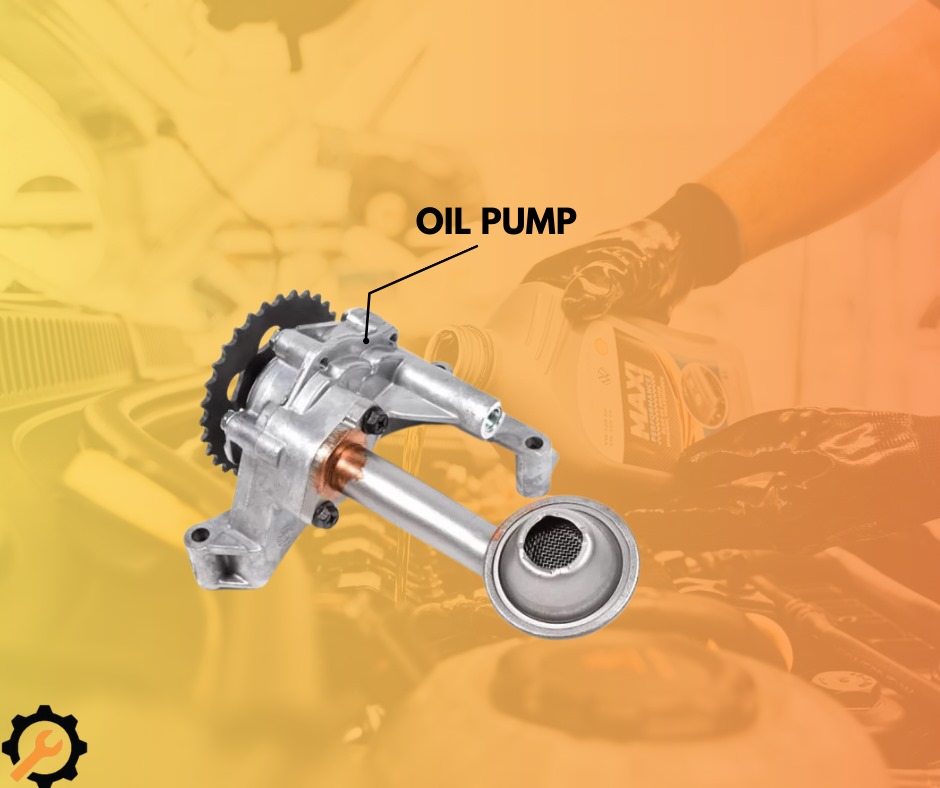Common Symptoms of a bad oil pump

Common Symptoms of a bad oil pump
An oil pump is a pump that sends lubricating oil under pressure to the bearings and other lubricated surfaces of an engine.
1. Low Oil Pressure
As mentioned earlier, the oil pump provides and regulates the pressure of the oil that lubricates and controls the temperature of your engine. By pressurizing the oil, the pump facilitates oil navigation throughout the different parts of the engine. An adequate supply of oil ensures the moving parts of the engine are properly greased and efficiently slide against each other without physical damage.Inadequate oiling due to low pressure from a bad oil pump causes the engine components to roughly rub against each other. The first signal of decreased oil pressure is the oil light on the dashboard powering up. Other consequences of decreased oil pressure are decreased power and engine stalling. Therefore, the answer to the question, can a bad oil pump cause misfires is yes.
2. Increased Engine Temperature
Lubrication oil reduces the engine temperature in two ways. First, it absorbs excess heat generated by the engine and dissipates it as it moves around the different parts of the engine. Also, lubrication oil decreases engine component friction. More friction results in higher engine temperature. Therefore, one of the symptoms of a bad oil pump is a significant increase in the operating temperature of your car engine.
When there is restricted oil flow in the engine and the engine temperature increases, your vehicle dashboard check light will light up to notify you of the alarming engine temperature. Vehicle overheating engines pose severe detrimental hazards to your engine. You should, therefore, take your car to the auto mechanic whenever you have overheating engine problems.
3. Hydraulic Lifter Noise
Other essential components of the valve-train operations of your vehicle engine are hydraulic lifters. They maintain the valve clearance with the rock and cam follower. Therefore, the lifters need enough oil lubrication to perform their function efficiently. Low oil pressure from the oil pump prevents the oil from reaching the hydraulic lifters. They will then struggle in mobility and produce a lot of noise when moving. Lack of lubrication causes extreme friction that leads to wear and tear, thus, significantly reducing the hydraulic lifters’ lifespan.
4. Noise from the Valve-Train System
The valve-train system of a car also includes important components like pushrods, seals, and valve guides that keep the engine running. Each of these components requires an adequate flow of oil for the lubrication of the metal parts. Inadequate lubrication causes friction to the mechanical parts of the engine, thus, the noise produced in the valve-train system. That is why noise production in the valve train can be a simple diagnostic for a vehicle with a bad oil pump.
5. Noise at the Oil Pump
A correctly functioning oil pump operates silently. However, when the pump begins to fail, it produces a whining and wiring sound when it attempts to circulate oil to the engine parts. The whining and wiring sounds are especially noticeable when the car is idling. The unfavorable sounds are due to the gears of the oil pump wearing out

 Loading..
Loading..